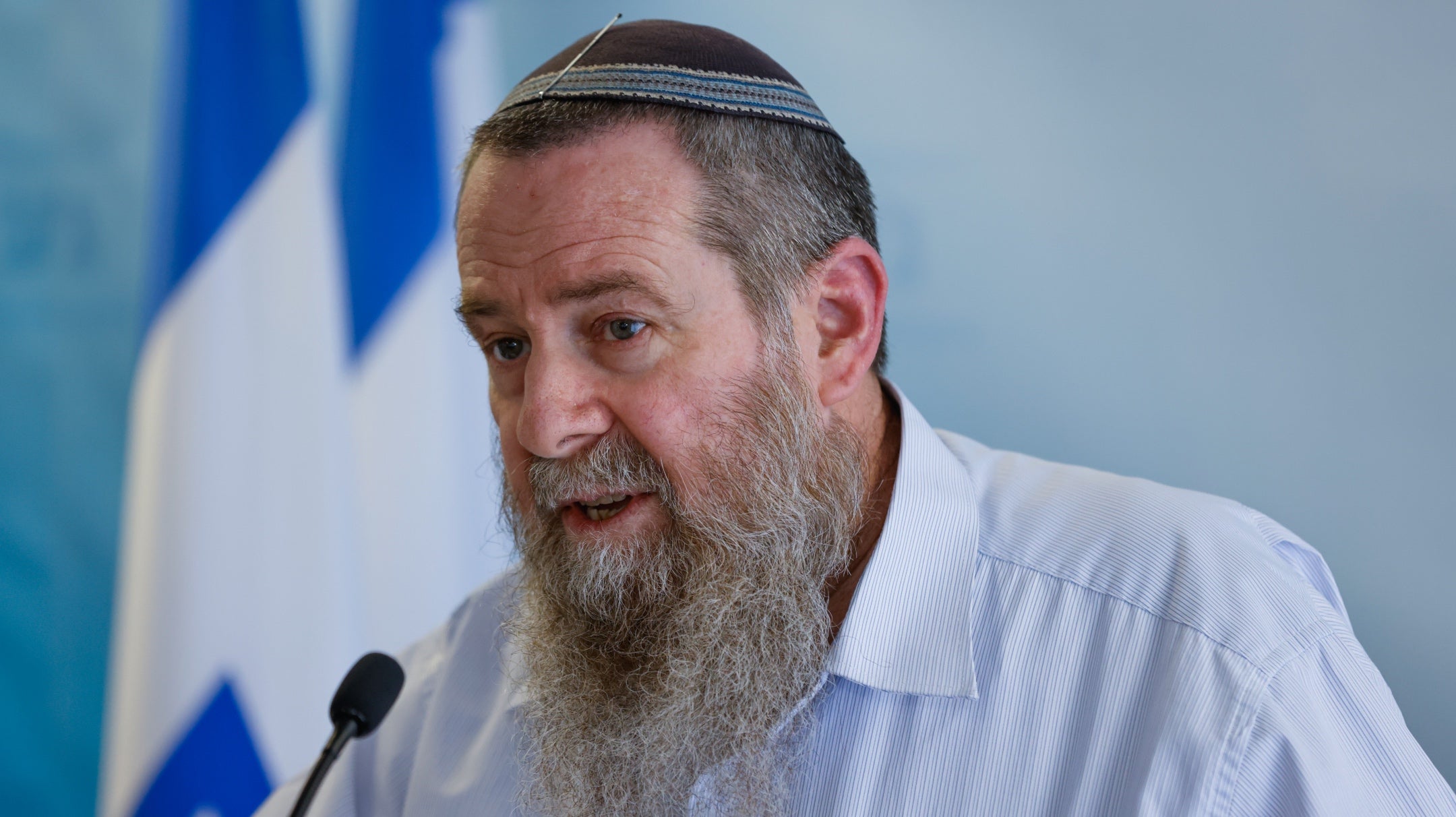Israel’s governing coalition is considering a bill that would significantly restrict who’s eligible for citizenship under the Law of Return, a foundational expression of Israel’s identity as a Jewish state.
The bill would eliminate a clause in the law that extends the right of citizenship to individuals who are not considered Jewish under religious law but have at least one Jewish grandparent. An estimated 500,000 Israelis immigrated to the country since 1970 under this provision, which has become a source of contention within Israel and a point of friction with Jewish communities abroad.
A discussion on the bill is scheduled for Sunday at the Ministerial Committee on Legislation, which plays a critical gatekeeping role in Israel’s legislative process. A vote by the committee to support the bill would mean it advances to parliament with the backing of Prime Minister Benjamin Netanyahu’s government.
The bill’s author is Avi Maoz, the far-right lawmaker from the Noam party, who in March quit Netanyahu’s coalition in protest of what he described as the government’s failure to advance a sufficiently Orthodox and nationalist agenda. The ministerial committee is also set to review a bill by Maoz to ban discussion of LGBTQ issues in classrooms.
Maoz and his allies argue that expanded eligibility for immigration serves to dilute Israel’s Jewish character.
“In its current form, the Law of Return allows even the grandson of a Jew to receive immigrant status and rights, even if he himself, and sometimes even his parents, are no longer Jewish,” says an explanatory note attached to Maoz’s bill. “This situation means that the law is being exploited by many who have severed all ties with the Jewish people and its traditions, and in effect empties the law of its original intention, which was to open the country’s gates to the Jews of the Diaspora.”
Similar or identical bills have been introduced in recent years by other members of Netanyahu’s government, including fellow Likud party lawmaker Shlomo Karhi, Minister of Finance Bezalel Smotrich and influential far-right politician Simcha Rothman, according to the explanatory note. Israel’s haredi Orthodox parties, which are also part of Netanyahu’s coalition, historically have opposed the “grandparent clause” as well.
Supporters of the grandparent clause say it upholds Israel’s identity as a refuge for anyone with Jewish ancestry, especially those excluded by Orthodox definitions. The clause was added in 1970 partly in response to the Nazi Nuremberg Laws, which marked for persecution anyone with at least one Jewish grandparent.
Many also see the clause as critical for welcoming Jews from the former Soviet Union, where decades of suppression left many unable to meet religious definitions but still connected, often deeply, to their Jewish heritage.
Under traditional halacha, or Jewish law, a person is considered Jewish only if their mother is Jewish, or if they formally convert to Judaism. Religious parties have also fought for years to reserve the authority for conversions to Orthodox rabbis.
In the Diaspora, there is strong support for maintaining the grandparent clause among major Jewish organizations and non-Orthodox movements, according to Stuart Weinblatt, a prominent Conservative rabbi and the chairman of the Zionist Rabbinic Coalition.
“I believe very strongly that issues such as security and borders should be decided by the sovereign democratically elected government of Israel, but there are other issues, which have an impact on Jewish peoplehood, which is worldwide, and it’s important to consider the wider consequences,” Weinblatt said.
He hopes those on the other side can come to see prospective immigrants as a boon to Israel rather than a threat, and find a way to embrace them despite the complications posed by religious law.
“There are people who have this connection to Judaism and the Jewish people, and instead of looking at closing the door, we should be welcoming them back into the fold, capitalizing on their desire to make their future in the homeland of the Jewish people,” he said.
Keep Jewish Stories in Focus.
(JEWISH REVIEW) has documented Jewish history in real-time for over a century. Keep our journalism strong by joining us in supporting independent, award-winning reporting.




